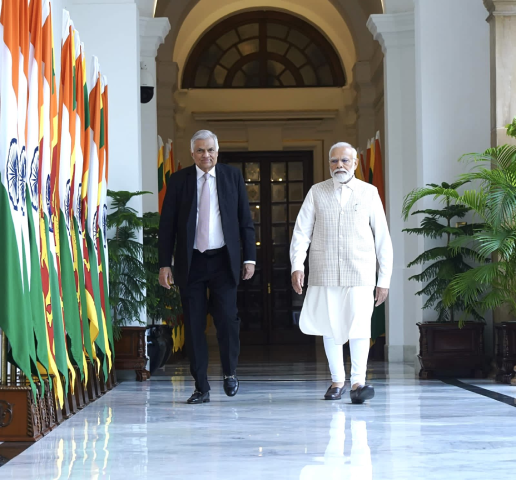India, which has been providing critical assistance to the beleaguered Sri Lanka, needs to switch gears and help the island nation rebuild its domestic economy with a focus on its blue economy, particularly the fisheries and aquaculture.
For a country with a coastline of 1,700 km, strengthening of its blue economy will be key to support its domestic economy and employment generation. Sri Lanka’s coastal community is primarily dependent on fisheries or tourism for its livelihood.
Besides seeking larger investments from Indian companies, Sri Lanka, home to 22 million, is hoping to get India’s push in boosting capacity in its fisheries sector that employs about 2.5 million people directly and indirectly. The sector is also important for the country to maintain its food supplies as well as boost exports.
It is also looking to reboot its small scale industries.
Sri Lanka’s GDP in the second quarter contracted 3.1 percent in the second quarter of 2023 against the same period last year. This is the sixth consecutive quarter of contraction.
Foreign policy experts noted that India needs to prioritise the relatively smaller and micro sectors of the economy that generate employment.
With Sri Lanka set to hold its next presidential elections in 2024, the domestic polity of the country will be under scrutiny. After former President Gotabaya Rajapaksa fled the country following a widespread protest and violence after the collapse of the country’s economy, Ranil Wickremesinghe, who was serving as prime minister, took charge.
“Sri Lanka wants India to share its experience, knowledge and expertise in many of the sub-sectors such as fisheries and small scale industries that touch the lives of millions,” Dhanuraj D, chairman, Centre for Public Policy Research (CPPR) told India Narrative.
“While India has been extending crucial support to Sri Lanka after its default, New Delhi must now focus more on helping Colombo revive its domestic economy in a sustainable manner with more investments along with sharing of knowhow. This will rebuild the lives of Sri Lankans and naturally strengthen India-Sri Lanka relations,” Dhanuraj said, adding that people to people connect between New Delhi and Colombo along with a thrust on the tourism sector must be prioritised.
Meanwhile, China, the largest bilateral creditor of Sri Lanka finally reached an agreement towards its debt restructuring exercise of about $4.2 billion. Even as the finer details of the agreement is not known, analysts said that India must continue its support to Colombo.
The Diplomat noted that in 2022, Sri Lankans under unprecedented pressure were “hoping for some support from both India and China in the face of mounting economic and financial woes.”
“However, the magnitude of Indian financing – and the lack of anything in comparison from China – came as a significant surprise,” it said.
Prime Minister Narendra Modi and Wickremesinghe, who was in India earlier this year, also signed an agreement to operationalise the Indian Unified Payments Interface (UPI), a move expected to boost connectivity economic and trade ties between the two neighbours.
Sri Lanka has already notified Indian rupee as a designated currency. Going ahead India needs to continue its focus on regional integration while supporting the island nation in several ways that directly make a difference to the citizens.
Also read: India set to launch two-hour ferry service to Sri Lanka as regional integration takes root




















